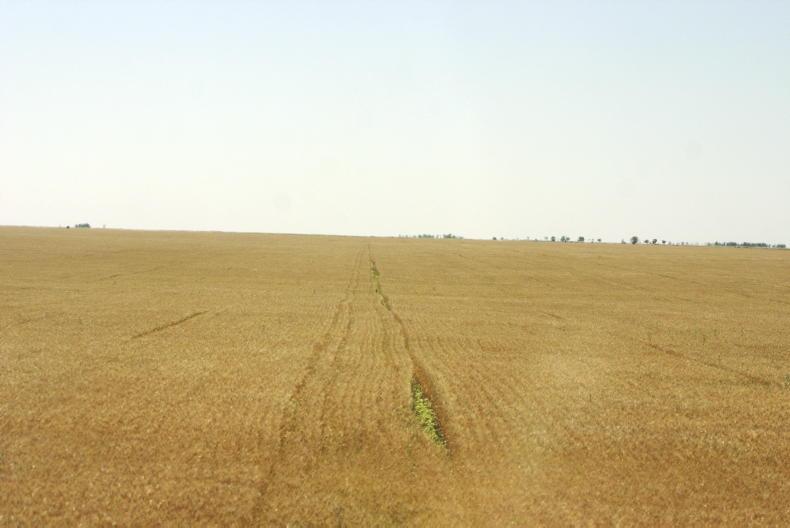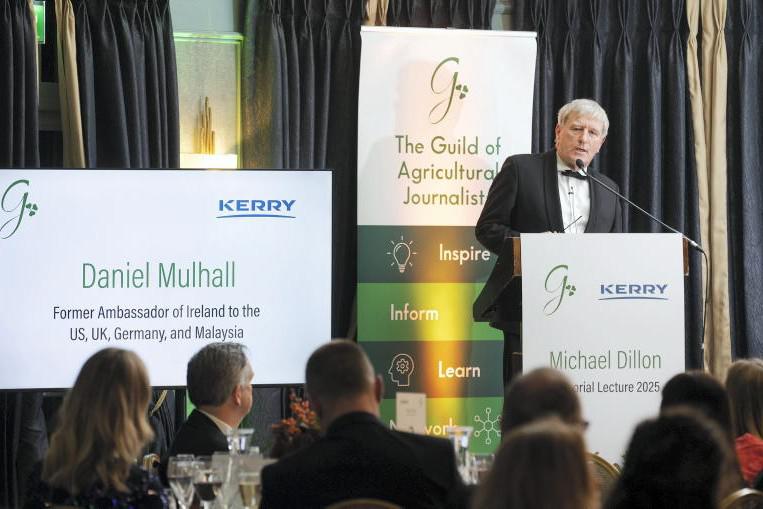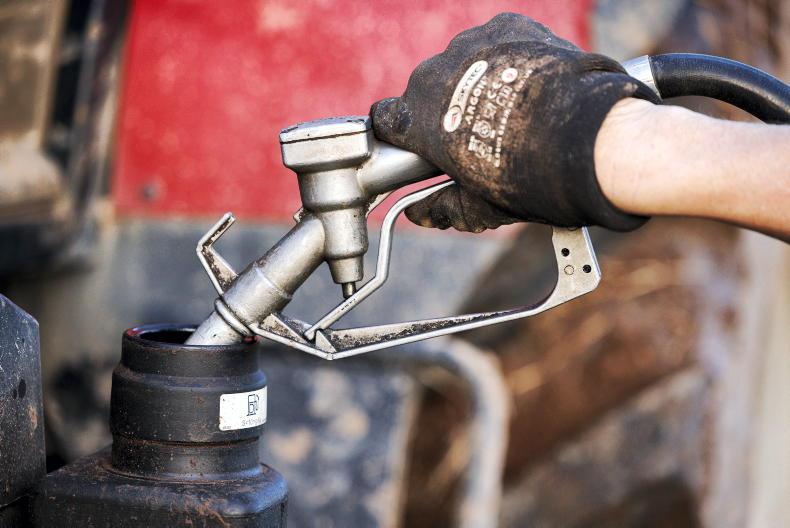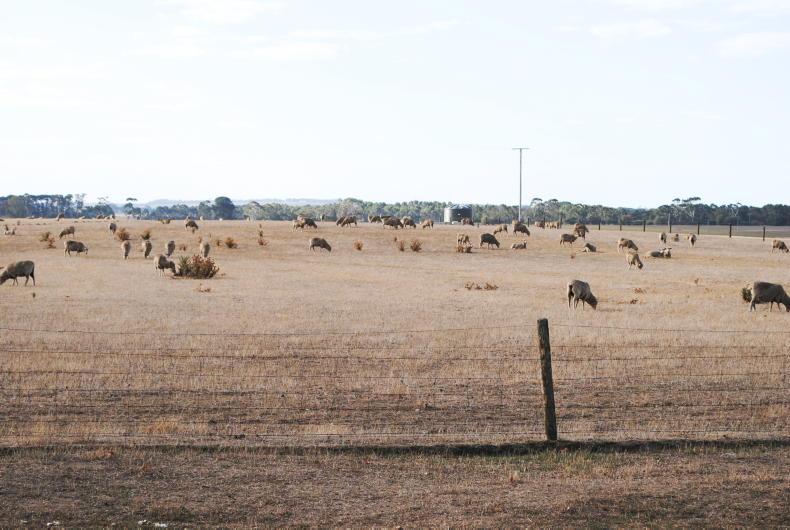Dairy farmers in the parts of south Ukraine that “have been occupied already” by Russian forces “can’t get milk to the milk factories” and are instead offering it to the local population and army, according to a farmer in the country.
Farmer Kees Huizinga also described how farmers in his area are avoiding farm and tractor work at night because having the lights switched on would attract attention from Russian drones.
He said: “We don’t know where these bombs are coming from. That’s part of the panic.”
He said farmers fear that their machinery will draw attention to nearby villages as “everywhere goes to blackness at night” and are worried that the Russians will “send a bomb at the tractors”.
Invasion
Huizinga, a Dutch man who has been farming in Ukraine for the past 20 years, described the impact of Russia’s invasion of Ukraine on farmers in an interview with the Irish Farmers Journal on Thursday.
He farms 200km south of the capital city Kyiv in an area which has not yet been occupied by Russian soldiers. However, he said some of his local towns have experienced missile strikes.
People in his area are 'nervous' but 'determined' and asked that people in Ireland 'keep supporting Ukraine to the end'
Before Russia commenced its invasion of Ukraine last week, Huizinga helped his wife and kids out of the country and has stayed behind to continue farming.
He said his company runs a large 15,000ha tillage farm which grows winter wheat, winter barley, winter granola, sunflowers, corn, sugar beet and soya beans. The farm also runs a 2,000-cow dairy herd.
All farmers in the area are “hoping they can get through spring”, according to Huizinga. He said people in his area are “nervous” but “determined” and asked that people in Ireland “keep supporting Ukraine to the end”.
Road blocks
Huizinga said farmers are bringing money to the army, using tractor loaders to help prepare road blocks to slow down Russian forces and gathering scrap steel to build “anti-tank barriers”.
He explained how farmers cannot get any of their produce to market.
“We can’t sell corn. We can’t get corn to the port because the ports won’t ship. They’re all afraid they’ll be shot at.”
While farmers in the south of the country can’t get milk to processors, Huizinga says those in his area can. He described how they are getting “milk to the factory for free”, “factories are processing it for free” and “it’s all donated to the army”.
“Everyone is bringing wheat to the mills for free to feed to army and go to Kyiv. The whole country is united.”
Labour
On how labour shortages are affecting farm work, Huizinga said: “A lot of guys are enlisting in the army - 10% of our guys have gone to the army. They’re going for their duty. Others are staying.”
Planting usually starts on Huizinga’s farm in the middle of March. He said: “We were getting ready to start planting, now we fight a war. The best case will be that there’ll be a reduced yield. Worst will be that we don’t get to plant at all."

Ukraine's tillage farmers fear yields will be reduced if they can't commence or continue planting on time.
“Farmers in the south had started planting already and now they have to stop. It’s a huge blow if they plant late.”
He described how military blockades in the Black Sea, an export route for much of Ukraine’s agricultural produce, are preventing ships from moving.
“They’re all blocked and there’s Russian warships. In and around Odessa, there is this big grain port and they are also afraid of being hit by bombs so it all stopped.”
Supplies
The tillage farmer said that supplies of fuel and fertiliser are becoming “reduced”. On feed for the farm’s 2,000 cows, he said: “We have some stock of corn silage, but it’s difficult now to get anything delivered. We are only one week into the war.”
He said the farm is now “spreading a little bit of fertiliser” during the day, but described how this stops at night in order to “stay safe” and avoid Russian drones.
The farmer explained how in spring, his farms plants “day and night” and said that if they continue to be only able to plant during the day, only half their crops will be planted.
Huizinga said he and farming neighbours are worried that the challenges they’re already facing are the “first sign that farming will stop” and warned that this “could happen all over [Ukraine]”.
Read more
‘Europe can no longer depend on others to feed us’ – Macron
Don’t take food for granted – McGuinness on war in Ukraine
Dairy farmers in the parts of south Ukraine that “have been occupied already” by Russian forces “can’t get milk to the milk factories” and are instead offering it to the local population and army, according to a farmer in the country.
Farmer Kees Huizinga also described how farmers in his area are avoiding farm and tractor work at night because having the lights switched on would attract attention from Russian drones.
He said: “We don’t know where these bombs are coming from. That’s part of the panic.”
He said farmers fear that their machinery will draw attention to nearby villages as “everywhere goes to blackness at night” and are worried that the Russians will “send a bomb at the tractors”.
Invasion
Huizinga, a Dutch man who has been farming in Ukraine for the past 20 years, described the impact of Russia’s invasion of Ukraine on farmers in an interview with the Irish Farmers Journal on Thursday.
He farms 200km south of the capital city Kyiv in an area which has not yet been occupied by Russian soldiers. However, he said some of his local towns have experienced missile strikes.
People in his area are 'nervous' but 'determined' and asked that people in Ireland 'keep supporting Ukraine to the end'
Before Russia commenced its invasion of Ukraine last week, Huizinga helped his wife and kids out of the country and has stayed behind to continue farming.
He said his company runs a large 15,000ha tillage farm which grows winter wheat, winter barley, winter granola, sunflowers, corn, sugar beet and soya beans. The farm also runs a 2,000-cow dairy herd.
All farmers in the area are “hoping they can get through spring”, according to Huizinga. He said people in his area are “nervous” but “determined” and asked that people in Ireland “keep supporting Ukraine to the end”.
Road blocks
Huizinga said farmers are bringing money to the army, using tractor loaders to help prepare road blocks to slow down Russian forces and gathering scrap steel to build “anti-tank barriers”.
He explained how farmers cannot get any of their produce to market.
“We can’t sell corn. We can’t get corn to the port because the ports won’t ship. They’re all afraid they’ll be shot at.”
While farmers in the south of the country can’t get milk to processors, Huizinga says those in his area can. He described how they are getting “milk to the factory for free”, “factories are processing it for free” and “it’s all donated to the army”.
“Everyone is bringing wheat to the mills for free to feed to army and go to Kyiv. The whole country is united.”
Labour
On how labour shortages are affecting farm work, Huizinga said: “A lot of guys are enlisting in the army - 10% of our guys have gone to the army. They’re going for their duty. Others are staying.”
Planting usually starts on Huizinga’s farm in the middle of March. He said: “We were getting ready to start planting, now we fight a war. The best case will be that there’ll be a reduced yield. Worst will be that we don’t get to plant at all."

Ukraine's tillage farmers fear yields will be reduced if they can't commence or continue planting on time.
“Farmers in the south had started planting already and now they have to stop. It’s a huge blow if they plant late.”
He described how military blockades in the Black Sea, an export route for much of Ukraine’s agricultural produce, are preventing ships from moving.
“They’re all blocked and there’s Russian warships. In and around Odessa, there is this big grain port and they are also afraid of being hit by bombs so it all stopped.”
Supplies
The tillage farmer said that supplies of fuel and fertiliser are becoming “reduced”. On feed for the farm’s 2,000 cows, he said: “We have some stock of corn silage, but it’s difficult now to get anything delivered. We are only one week into the war.”
He said the farm is now “spreading a little bit of fertiliser” during the day, but described how this stops at night in order to “stay safe” and avoid Russian drones.
The farmer explained how in spring, his farms plants “day and night” and said that if they continue to be only able to plant during the day, only half their crops will be planted.
Huizinga said he and farming neighbours are worried that the challenges they’re already facing are the “first sign that farming will stop” and warned that this “could happen all over [Ukraine]”.
Read more
‘Europe can no longer depend on others to feed us’ – Macron
Don’t take food for granted – McGuinness on war in Ukraine










SHARING OPTIONS